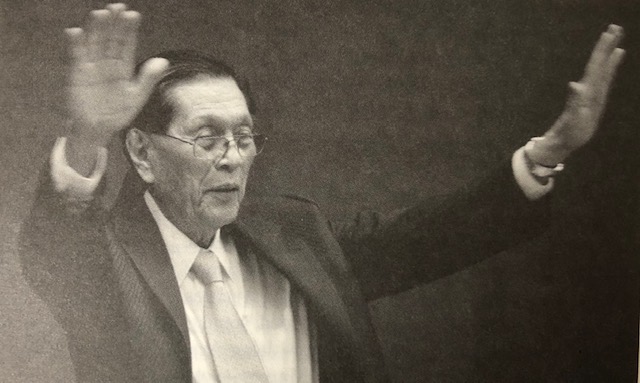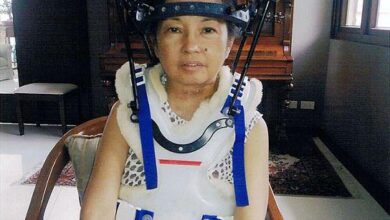
Juan Ponce Enrile: A Complicated Legacy
Juan Ponce Enrile has passed away at 101, a man who lived through more than a century of Philippine history. He watched the country rise and fall like tides battering a rugged coastline. But behind the legend lies a darker story.
The Art of Survival
Enrile was born on February 14, 1924, in Gonzaga, Cagayan. He earned his law degree from the University of the Philippines in 1953. And later completed a Master of Laws at Harvard in 1955. From the start, his career was tied to government service. He slowly built the connections that anchored his long life in politics.
By the late 1960s, Enrile had risen through the ranks. When Ferdinand Marcos Sr. declared Martial Law in 1972, he became one of the architects of the regime’s security apparatus. Those years defined his capacity for survival. The turning point came in 1986. As protests swelled and the regime crumbled, Enrile broke with the president he had served for decades. He joined the People Power Revolution that ultimately toppled the dictatorship.
After Marcos fell, Enrile returned to elected office and won multiple Senate terms from 1987 to 2016. Even in his late nineties, Ferdinand “Bongbong” Marcos Jr. appointed him Chief Presidential Legal Counsel. Enrile always knew how to play the game.
The Darker Side of Power
Enrile’s long career in politics was not without its shadows; over the decades, he became embroiled in multiple controversies. Let’s dig into them one by one:
-
The Ambush
Have you heard of his 1972 ambush story? The supposed attack on his car that was later questioned by multiple accounts. Marcos used this narrative as a key justification for declaring Martial Law, presenting it as proof that the Republic was under threat.
-
Logging
Beyond political maneuvers, Enrile also pursued major business ventures. One example was his vast logging concession in Northern Samar through the San Jose Timber Corporation. Which controlled tens of thousands of hectares of forest land. At the time, Samar’s forests were among the richest in the country, home to old-growth dipterocarp species that took centuries to mature. During the martial law period, when environmental regulations were weak and political allies often granted concessions, logging operations boomed. The result was the rapid clearing of large tracts of forest. Local accounts describe mountains stripped nearly bare, rivers turning brown with silt, and communities losing the natural barriers that once protected them from storms. Some researchers and local officials today connect this widespread deforestation to the worsening floods, landslides, and soil erosion that continue to affect the country.
-
The Sag-od Massacre
Historical accounts also reported that security forces linked to these logging operations were involved in the 1981 Sag-od massacre, where 45 villagers, including women and children, were killed. The incident became one of the most haunting reminders of how private and political power could merge during the martial law years, with corporate interests, state forces, and local communities colliding in deadly ways.
-
Coconut Levy Fund
Enrile’s reach extended beyond forests. He was also connected to the coconut levy fund, a decades-long controversy over taxes collected from millions of coconut farmers that were instead diverted to private and political interests. The levy became one of the most enduring symbols of crony capitalism, and its unresolved aftermath still affects farmer claims today.
-
Pork Barrel Scam
And yes, there was also his involvement in the pork barrel scam, another episode in the long list of controversies that marked his public career.
-
And finally, the Lucas Case
The shadows reached into his own family. In the 1970s, Enrile’s son, Juan “Jack” Enrile Jr., was linked to the fatal shooting of Ernest Lucas Jr. during a private Ateneo party. U.S. diplomatic cables released through WikiLeaks later suggested that some NBI sources believed both Jack and his bodyguard were “liable to prosecution,” raising doubts about why the case was eventually dropped. Lucas’ uncle, Father Robert Reyes, alleged a cover-up, while Jack denied this, calling the accusations hearsay and insisting that his bodyguard acted independently.
Enrile wrote about this in his memoir, describing the episode as “one of the most painful and jolting experiences” of his life. As Minister of National Defense at the time, he said the moment struck him with its gravity. No one has ever proven the case, leaving it as one of the most disputed and symbolic episodes tied to the family’s name.
READ: Engineers of Corruption: Like Father, Like Son
Enrile’s story is a mirror of a nation that has long tolerated the merging of political privilege and historical amnesia, blind to the machinery that greases the wheels of their impunity.
It serves as a reminder of the enduring presence of entrenched political families in the Philippines, where justice often bends its knee before the mighty.




